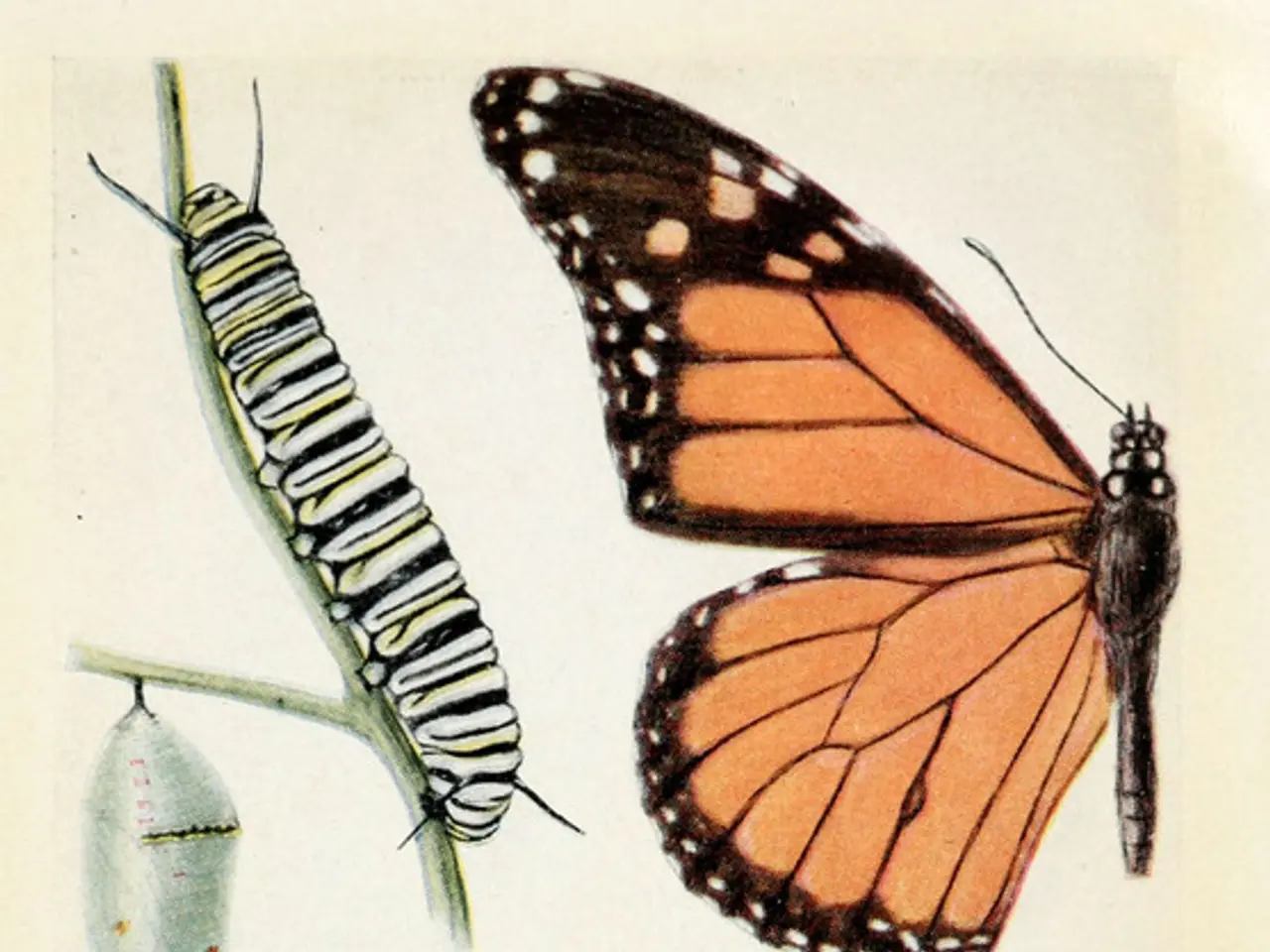Scientist advocates for appreciation of wasps, species routinely disparaged by many.
In the heart of London, the UCL Grant Museum of Zoology has opened its doors to the captivating world of wasps with the World of Wasps exhibition. The exhibition, running until January 24, 2026, aims to shed light on the unseen lives of these often misunderstood insects [1].
Wasps, it seems, are nature's pest controllers, regulating populations of flies, caterpillars, aphids, and spiders within the ecosystem [2]. Their contribution to maintaining balance in the natural world is a testament to their importance, a fact that is often overlooked.
Seirian Sumner, a professor of behavioural ecology at University College London, has devoted her career to studying wasps. Her fascination with these insects is evident in her book and her Instagram handle, "waspprof." In the exhibition, she presents her top reasons for loving wasps [1].
- Natural Pest Controllers: Wasps help support ecosystem balance and benefit gardens and agriculture by preying on various pests [2].
- Complex Colony Dynamics: The seasonal change in wasps' feeding behaviour reflects intricate social organisation and division of labour in the colony [1].
- Unique Physiology: The distinct narrow petiole (wasp-waist) allows wasps remarkable flexibility to paralyse or parasitize prey, an evolutionary trait that underpins their hunting prowess [1].
- Liquid Diet and Mutual Feeding: Adult wasps feed largely on liquid, while larvae provide them with nutritious secretions in a mutual feeding process [1].
- Evolutionary Interest and Diversity: Wasps are fascinating subjects for studying evolutionary adaptations, highlighting their role in broader ecological and evolutionary contexts [3].
Wasps are not just beneficial for the ecosystem, but they also play a crucial role in pollination. Like bees, they visit flowers to get nectar [4]. In some parts of Asia, wasps are a popular source of nutrition for humans, boiled or freeze-dried and eaten with chili, and are high in protein and low in fat [5].
One of the most intriguing aspects of wasps is their ability to produce antibiotics in their venom and on their bodies. This microbial defence could potentially be tapped into [1]. Moreover, some research suggests that wasp venom may potentially be a cure for cancer, as shown in one study that demonstrated a Brazilian wasp can kill cancer cells without harming surrounding healthy cells [6].
The kiwikiu, a small Hawaiian honeycreeper endemic to Maui, is critically endangered due to avian malaria, a disease spread by mosquitoes. The study of wasps could potentially lead to new ways of combating such diseases [7].
In the case of the American crocodile (Crocodylus acutus), whose population has dwindled due to illegal hunting, habitat destruction, and pollution in Jamaica, understanding the role of wasps in the ecosystem could help in their conservation efforts [8].
The polistes paper wasp, for instance, helps scientists understand the evolution of altruism and why animals come together to live in groups. This insect, like the insect version of a meerkat, has individuals that can switch roles from queen to worker [9].
In conclusion, the World of Wasps exhibition at the UCL Grant Museum of Zoology in London offers a fascinating glimpse into the lives of wasps, emphasising their ecological roles, fascinating biology, and behaviours. It serves as a reminder that these insects, often seen as nuisances, are vital, complex, and remarkable creatures worth appreciating.
References: [1] Sumner, S. (2021). Seirian Sumner’s top reasons for loving wasps. UCL Grant Museum of Zoology. [2] Wasps: Nature's Pest Controllers. (n.d.). The Conversation. [3] Sumner, S. (2014). The Wasp That Brainwashed the Caterpillar: How Insect Societies Reveal the Evolution of Social Behavior. Princeton University Press. [4] Wasps as Pollinators. (n.d.). Pollinator Partnership. [5] Wasps as Food. (n.d.). Food and Agriculture Organization of the United Nations. [6] Ferreira, R. R., et al. (2013). A Brazilian wasp venom peptide exhibits anticancer activity with low toxicity for mammalian cells. Proceedings of the National Academy of Sciences. [7] Kiwikiu: A Critically Endangered Hawaiian Honeycreeper. (n.d.). U.S. Fish and Wildlife Service. [8] American Crocodile. (n.d.). International Union for Conservation of Nature. [9] The Polistes Paper Wasp: An Insect Model for the Evolution of Altruism. (n.d.). University of California, Berkeley.
- Wasps are integral to maintaining a balanced ecosystem, not only preying on pests in our gardens and agriculture but also contributing to pollination, similar to bees.
- Besides their ecological roles, wasps are fascinating subjects for studying evolutionary adaptations, such as their unique physiology, intricate social organization, and the division of labor within their colonies.
- In the realm of technology and self-development, research into wasps' antibiotic production and venom could lead to new medical innovations, possibly providing potential cures for diseases like cancer.
- In the lifestyle and food-and-drink sectors, wasps are even consumed as a nutritious food source in certain Asian cultures, providing an interesting intersection between environmental science and human health-and-wellness.




